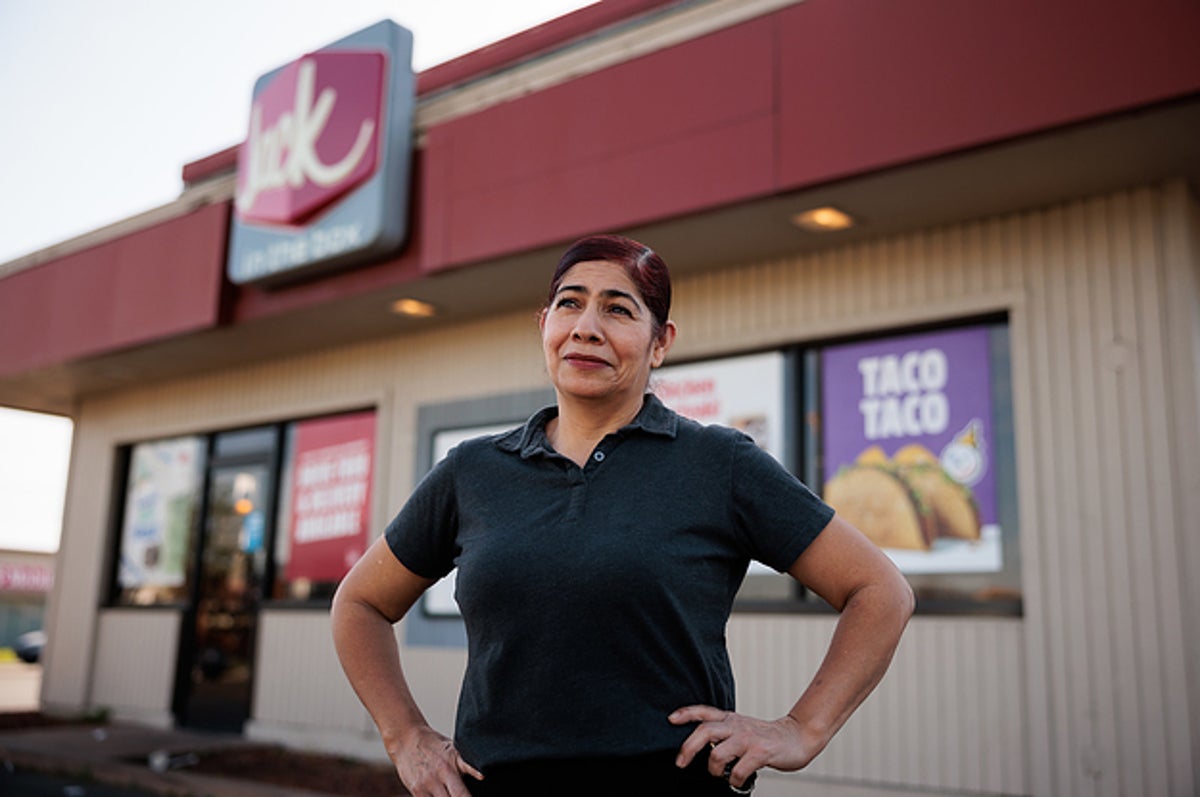|
An Oregon federal judge affirmed a $5.3 million jury win for nearly 5,000 Jack in the Box employees alleging minimum wage, overtime and late pay violations, saying given the company's systemic failures the damages were reasonable, but amended the verdict correcting errors in the jury's penalty wage calculations. U.S. District Judge Marco A. Hernandez in a Thursday order denied the motion to reduce the damages award the company called "unconstitutionally excessive" in the workers' Fair Labor Standards Act class action, saying to do so would be diverging from state wage and hour law. "The public policies underlying Oregon's wage-and-hour laws are of fundamental importance to individual employees and to the public welfare because the delay or nonpayment of wages results in deprivation of the necessities of life, including the inability to meet just obligations to others," Judge Hernandez wrote in the order. "The court, therefore, finds this factor does not favor reducing the penalty-wage award." Jack in the Box had objected to a jury verdict in October awarding $5.3 million to nearly 5,000 employees who each received around $2,000 in penalty wages, saying it was too large of an award. The jury had found that the class members were not paid minimum wages, sufficient overtime and did not receive timely payment of final wages and that they were entitled to penalty wages for those violations. The workers argued, and the judge agreed Thursday, that employees in Oregon regularly recover penalty wages within that range and have never been found to be unconstitutionally large. The Oregon legislature ensured that by enacting a law capping penalty wages at the employee's hourly rate times eight hours times not more than 30 days, the judge added. "Defendant's violations occurred against every Oregon employee in every paycheck for years. In addition, many of the employees impacted by defendant's violations were minimum wage workers," the judge said in denying the company's motion. "Oregon's need to secure uniform compliance with its wage-and-hour laws is fundamental and important." Jack in the Box had been over-withholding contributions to the Oregon's Workers' Benefit Fund from every paycheck of every state worker for nearly a decade and only corrected the issue after it no longer had any workers in the state, the judge said. The individual over-withholdings were only a few cents per hour, but Judge Hernandez said that did not excuse the fact that the violations occurred thousands of times and affected thousands of workers. "These violations were not isolated incidents or the result of a few managers engaging in violative behavior, but rather the result of a state-wide, company-driven system that persisted from 2004 through 2012," the judge wrote. Jon Egan of the Egan Legal Team, who is representing the workers, said that in addition to the $5.3 million jury award, Jack in the Box owes $993,400 in damages for the WBF over-deductions. That brings the total damages to $6,373,453, plus over $6.5 million in pre-judgment interest. However, Judge Hernandez shaved $1,908 off the $2,690,544 penalty wages owed to the WBF class, because the jury had misunderstood how to calculate something with respect to one named plaintiff who had settled his claims and should not have been included in the total calculation. Judge Hernandez also granted Jack in the Box's request to remove penalty wages attributable to the named plaintiffs' shoe deductions, noting that the jury had not found there were improper shoe deductions, knocking the plaintiffs' $21,112 total penalty wages to $11,500. The case began in 2010 as a proposed class and collective action seeking unpaid overtime and minimum wages for workers at corporate-owned Jack in the Box restaurants in Oregon. After some claims were trimmed, the suit now centers on late paychecks and deductions the company took to pay into the state worker's benefit fund and to supply workers with nonslip shoes. The state fund and shoe deduction subclasses had been certified in 2017, as well as a subclass alleging the chain didn't promptly give workers their last checks when it transferred restaurants to franchisees between 2006 and 2011. In November 2019, U.S. District Judge Anna Brown had ruled on several summary judgment motions and rejected the company's bid to send the suit into arbitration. Jack in the Box argued that the named plaintiffs signed arbitration agreements that would normally compel their suits into arbitration, but Judge Brown in 2019 found that the chain waived its right to use these agreements by not trying to enforce them until several years into the lawsuit. Judge Brown also in 2019 found Jack in the Box violated state wage law by diverting too much employee pay to the benefit fund, finding it acted carelessly, and that it had unlawfully failed to give workers their last paychecks during the franchisee takeover, saving the damages calculation for later. Judge Brown at that time additionally denied the workers' motion for summary judgment on their shoe-related claims, finding it was unclear whether the workers had consented to the company's deducting the shoes' cost from their paychecks. Representatives of the parties did not immediately respond to requests for comment Friday. The workers are represented by Jon Egan of the Egan Legal Team and Jim W. Vogele. Jack in the Box is represented by Douglas Parker, Heather St.Clair and Ian Maher of Lane Powell PC and by David P. R. Symes of Symes Law Office LLC. The case is Jessica Gessele et al. v. Jack in the Box Inc., case number 3:14-cv-01092, in the U.S. District Court for the District of Oregon.
0 Comments
Leave a Reply. |
HISTORY
April 2024
Categories |
© Walk 4 Change. All rights reserved.


 RSS Feed
RSS Feed